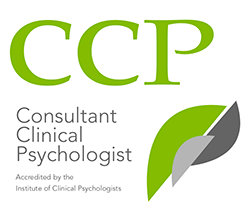Why Use An
ICP Member?
All ICP Members are endorsed by the Psychology Board of Australia to practice as Clinical Psychologists, in recognition of their specialist skills in mental health.
ICP’s full members have a minimum of 8 years training in psychology, including 4 years of advanced, accredited postgraduate training in mental health.
ICP’s Associate members include registrars in the final years of their training to become a Clinical Psychologist. They have at least 6 years of university training dedicated to the discipline of psychology, and 2 years of accredited training in the assessment and treatment of mental health.
Most of our full members are senior clinicians who are highly regarded and recognised in their fields of practice.
All of our members are committed to ongoing professional development and training.
Our network of professionals are able to draw on each other’s experience and expertise, ensuring that you are in good hands, no matter which ICP Member you choose to consult.
Our Full ICP Members give you access to the highest Medicare rebates available whilst giving you high quality care.
Our members practice in accordance with the Code of Ethics prescribed by the Australian Health Practitioner Regulation Agency (AHPRA), who regulate Australia’s health practitioners.
Consultant Clinical Psychologist
ICP recognises excellence, advanced training and expertise amongst its already highly qualified members.
The ICP Consultant Clinical Psychologist award has its own logo which is protected under copyright.

Choosing a Therapist
When looking for a practitioner for yourself, a loved one, or your situation, it’s a great idea to research and ask questions. The following suggestions may be helpful in your search.
Clinical psychologists have completed rigorous and comprehensive training in psychology and have specialist skills and capabilities in the area of mental health.
To qualify as a Clinical Psychologist, current regulations require a minimum of 8 years university and accredited training, with 4 years dedicated to postgraduate and higher level training focused on mental health. The practitioner must demonstrate specialist skills and capabilities in mental health assessment and treatment.
All of ICP’s full members have these qualifications.
Registered psychologists do not require the same level of accredited training in mental health as Clinical Psychologists.
https://www.psychologyboard.gov.au/Endorsement/Pathways-to-endorsement.aspx
Psychiatrists have completed a medical degree and further training and study related to the diagnosis and treatment of mental illness. Psychiatrists specialise in the medical treatment of mental illness and can prescribe medication. Some psychiatrists combine medication with psychotherapy. Some work closely with clinical psychologists in treating the same person or group.
Counsellor: In Australia anyone, even people with no training at all, can call themselves a counsellor. Some counsellors have completed training in an educational setting. Some have completed supervised practice though the Psychotherapy and Counselling Federation of Australia (PACFA) which is attempting to establish standards and ethical training of counsellors.
Coach: The area of “coaching” is similar to “counsellors”. Life coaches may come from all walks of life, with “life experience” the guiding medium. Some may have some psychology education. It is important to check credentials since there is no formal health training required to become a life coach outside of a short period of supervision by another life coach.
…they will use different approaches to therapy and have varying interpersonal styles. Some see only adults, some see only children, and some see families. Some will provide services to all three. The different types of approach to therapy will include work with groups, or with an individual or couple. There are also a variety of approaches a Clinical Psychologist might take to therapy such as mindfulness, Cognitive Behaviour Therapy, Person Centred therapy- to name just a few. The list is very long, and many experienced Clinical Psychologists are adept at a variety of different therapeutic approaches. It is important that the therapist you choose has expertise in the issues/s you wish to bring for therapy.
Does the therapist have postgraduate training in mental health? Have they qualified as a Clinical Psychologist (which means they have been formally assessed by the Psychology Board of Australia as having specialist skills and knowledge of mental health)?
Do they have expertise and experience with the issue/s you wish to work on?
What are their fees? Are their fees rebatable through Medicare, your insurer, private health fund, NDIS or Department of Veteran Affairs?
Can you access the higher or lower Medicare rebate? (Please note that Clinical Psychologists attract a higher rebate than other Psychologists.)
How long have they been in practice?
Do they have expertise in particular approaches?
These and other considerations important to you will help you select a good fit.
When thinking about your choice, it’s helpful to be aware that change is usually your goal when you seek therapy. And, change often feels uncomfortable. Changing attitudes, behaviours, or thought processes (whatever is keeping you stuck or distressing to you) can produce distress or anxiety because old ways can feel comfortable. A Clinical Psychologist will raise issues that might feel uncomfortable. This is a sign that the therapy is working. It is at these times that it’s important to understand that your Clinical Psychologist has your best interests in mind. So, when choosing a Clinical Psychologist, it is not necessarily the one who is nice, or feels the most comfortable, but the one who is willing to confront issues and support you through any distress you may feel as you develop new ways of coping, thinking and behaving.